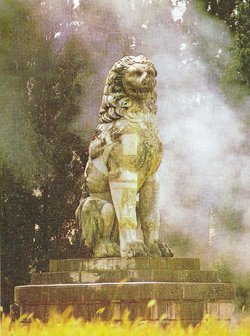Sacred Band of Thebes
|
|

The Sacred Band of Thebes (in ancient Greek ἱερὸς λόχος / hieròs lókhos) was an elite Greek troop of 150 pairs of pederastic lovers, according to Plutarch (in the Life of Pelopidas) formed by the Theban commander Gorgidas. The pairs consisted of the older heniochoi, charioteers, and the younger paraibatai, companions. The motivation for the use of such an "Army of Lovers" in battle is also stated by Plutarch:
- "For men of the same tribe or family little value one another when dangers press; but a band cemented by friendship grounded upon love is never to be broken, and invincible; since the lovers, ashamed to be base in sight of their beloved, and the beloved before their lovers, willingly rush into danger for the relief of one another."
According to Plutarch, Gorgidas initially distributed the Sacred Band of Thebes throughout his battle lines as an elite to strengthen the others' resolve, but later Pelopidas, after the Band had fought successfully at Tegyrae, used it as a sort of personal guard. For about 33 years, the Sacred Band of Thebes remained an important part of the Greek infantry.
Its defeat came at the Battle of Chaeronea, the decisive battle in which Philip II of Macedon and his son Alexander the Great ended the independence of the Greek city-states. Philip had been held as a hostage in Thebes, and had learned his military tactics there. The remainder of the Theban army fled when faced with the overwhelming forces of Philip and Alexander, but the Sacred Band, surrounded, held their ground and fell where they stood. Plutarch recounts that upon encountering their corpses heaped together and understanding who they were he exclaimed:
- "Perish any man who suspects that these men either did or suffered anything unseemly."
Though Plutarch claims that all three hundred died that day, other writers claim that two hundred and fifty four died and all the rest were wounded. That claim was substantiated upon the excavation of their communal grave at Chaeronea, in which two hundred and fifty four skeletons were found, arranged in seven rows.
Greek_warrior_and_young_charioteer_-_Athens_pediment.jpg
Plato wrote about the code of honor of the Sacred Band of Thebes:
- "The beloved, when he is found in any disgraceful situation, will be pained at being detected by his lover. If there were only some way of contriving that a state or an army should be made up of lovers and their loves, they would be the very best governors of their own city, abstaining from all dishonour... For what lover would not choose rather to be seen by all mankind than by his beloved, either when abandoning his post or throwing away his arms... Or who would desert his beloved or fail him in the hour of danger?"de:Heilige Schar
fr:Bataillon sacré it:Battaglione sacro he:החבורה המקודשת של תבאי
